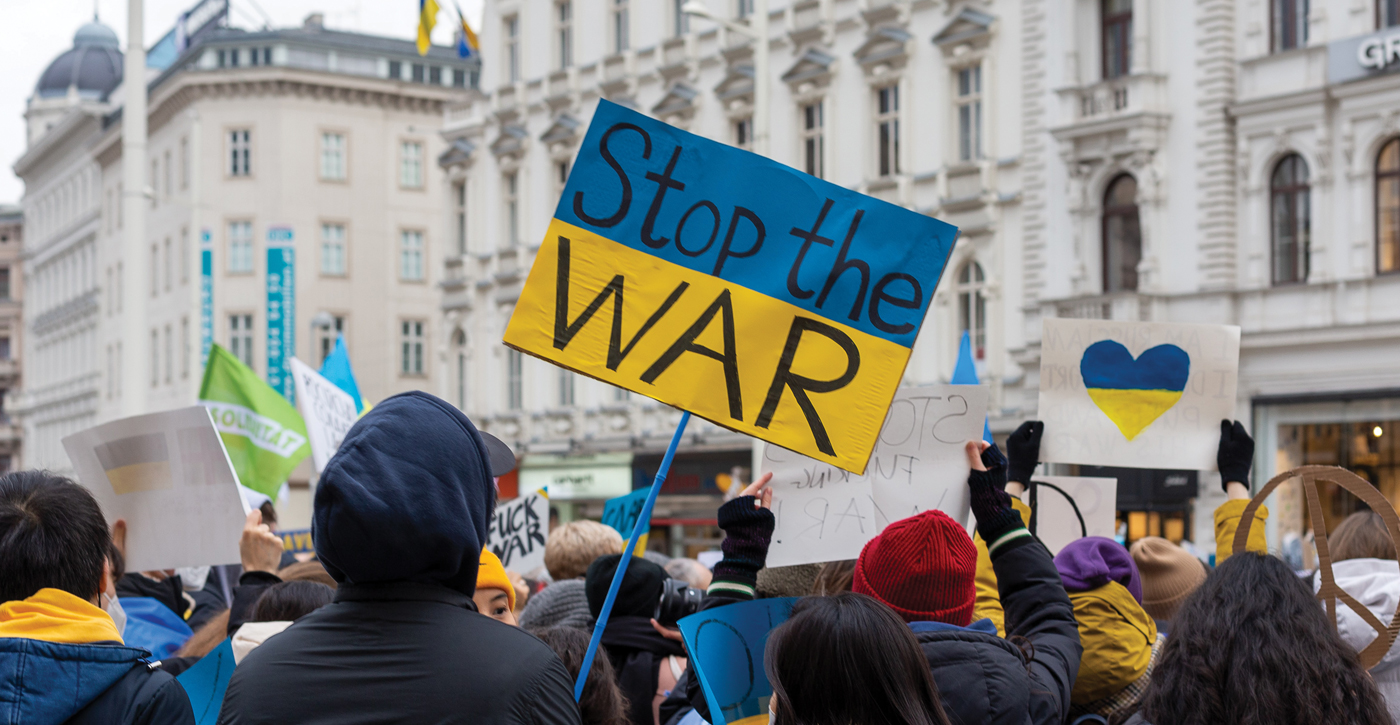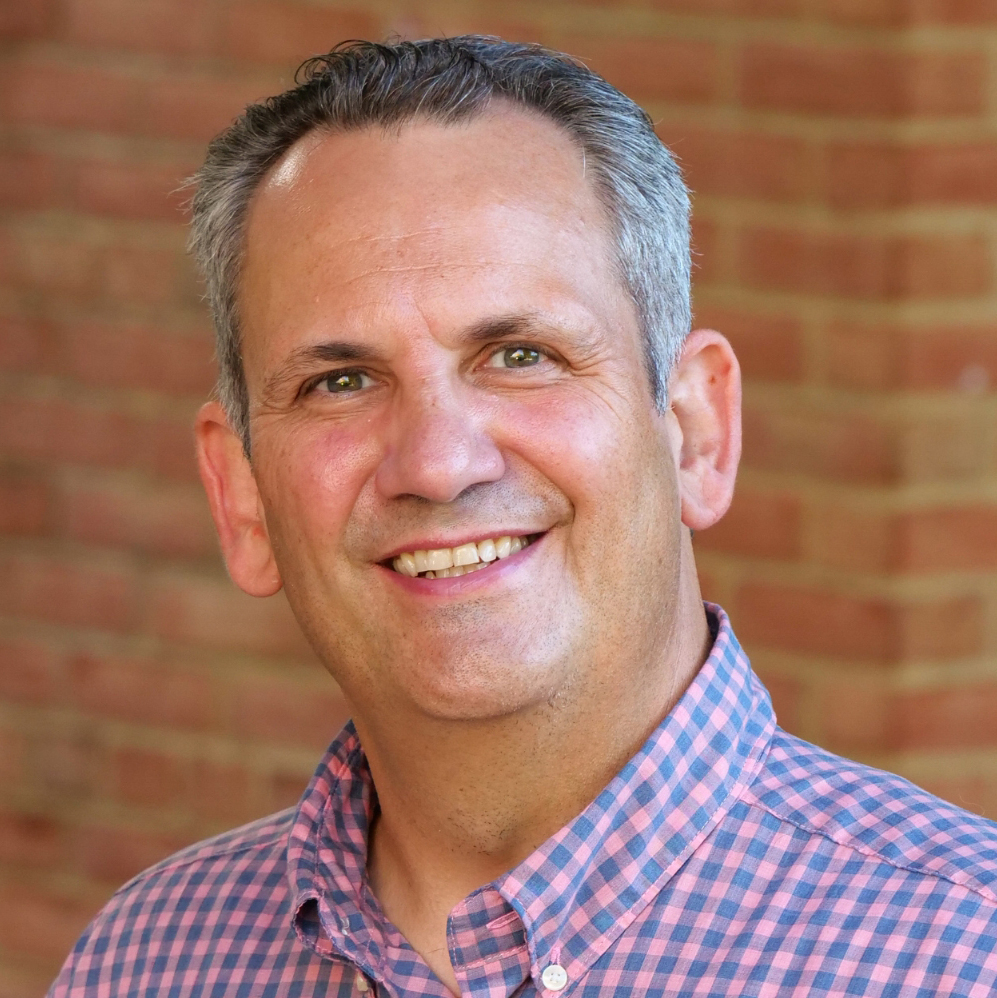The Peace Testimony and Ukraine
March 15, 2022
By Bryan Garman

Photo by Tetiana Shyshkina on Unsplash
The Russian invasion of Ukraine has shaken us all. Innocent civilians have been killed, suffering has worsened, negotiations have failed. Governments around the globe are condemning this depraved military maneuver and are collaborating to defuse it in ways that seemed impossible only a week ago. We hold the citizens of Ukraine and all victims of war in the Light.
For centuries, Friends have proclaimed their commitment to nonviolence. As early as 1654, George Fox insisted that nations “cannot engage in war as a method for settling international disputes, for war is a test of strength, not a search for truth and justice.” War, Quakers believed, proceeded from the “lusts of men.” And while the British persecuted Friends throughout the 1660s, Fox’s followers boldly affirmed their commitment to pacifism in their Declaration to Charles II. “Our principle is, and our Practice have always been, to seek peace and ensue it,” they insisted, “seeking the good and welfare and doing that which tends to the peace of all.”
In 1947, the Nobel Committee recognized Quakers’ long-standing dedication to nonviolence and service, and the American Friends Service Committee and the British Friends Service Council received the Peace Prize on behalf of Friends. In particular, Quaker peace-building activities had caught the committee’s attention during and after World War II. Friends established air raid shelters and centers for war victims in England, and adapted meeting houses and other facilities to create evacuation hostels for children and the elderly. Prominent Quakers continued to lead humanitarian causes in the wake of the Holocaust.
Quakers are clear on their obligation to wage peace, serve those in need, and pursue diplomatic channels, no matter how narrow they might be. But what happens when diplomacy fails, justice is breached, aggression persists, and lives are endangered? How do we justify waiting for diplomacy as tanks approach Kyiv and missiles flatten maternity hospitals? How can we avert our eyes from social media and news cycles that depict the gruesome toll of war? The ways of the world complicate the practice of the peace testimony, calling Friends to develop deep and nuanced knowledge about specific conflicts and compelling them to examine their consciences. To understand the situation in the Ukraine, we must not simply cling uncritically to the peace testimony. We must also understand the dynamic geopolitical and historical forces at play.
Quakers are short on dogma and long on discernment, a process that calls individuals to interrogate circumstances, seek truth, and act upon their conscience.
Over the centuries individual Quakers have engaged in warfare provided they deemed the cause just.
- Somewhere between thirty and fifty percent of eligible U.S. and British Quakers fought in World War I,
- and approximately three-quarters chose to bear arms in World War II.
Robert L. Smith, a devout Quaker who would become the headmaster of Sidwell Friends, was among those who served in the military in the latter conflict.
By the time he earned admission to Harvard, Bob was reflecting on the role he should play in turning back the “ocean of darkness” that flooded Europe.
“Is there that of God in every man?,” he asked. “Can you maintain that ideal in a world dominated by barbaric cruelty?”
There can be, and in the case of stopping fascism there were, multiple truths. The peace testimony provides a moral touchstone and calls us to act according to the leadings of our conscience. It enables us to recognize that faith must be tested in real time and on rugged terrain where change accelerates toward unforgiving and potentially irreversible circumstances. The testimony’s archaic language calls us to do our best to arrest time and wrestle with eternity,
There can be, and in the case of stopping fascism there were, multiple truths. The peace testimony provides a moral touchstone and calls us to act according to the leadings of our conscience. It enables us to recognize that faith must be tested in real time and on rugged terrain where change accelerates toward unforgiving and potentially irreversible circumstances. The testimony’s archaic language calls us to do our best to arrest time and wrestle with eternity,
so that we might discern truth with discipline, so that we might act to save the best of humanity for the future.
- This way of being in the world is not infallible, but it may well offer us the best chance we know to seek peace, to pause
- so that we can see the divine even in our enemies,
- and to weigh competing truths.
Ukraine
Viewpoint

Bryan Garman
Bryan Garman has been working in Friends education for 25 years. He has previously served as head of Wilmington (Del.) Friends School and is the current head of Sidwell Friends in Washington, D.C.. He is a member of the Friends Council on Education board of trustees.
Bryan Osborne
We need to stop isolating Ukraine as sort of priority and be supportive of the some eight power based conflicts around the globe incl Palestinian and Yemeni conflicts.
Viewpoint

Bryan Garman
Bryan Garman has been working in Friends education for 25 years. He has previously served as head of Wilmington (Del.) Friends School and is the current head of Sidwell Friends in Washington, D.C.. He is a member of the Friends Council on Education board of trustees.
===
Carol Chrisman McIntyre shared a link.
I must confess I have struggled with this and am gratified that this is an issue for others as well, since I cannot abide by seeing others suffer at the hands of madmen with power who are intent on bullying the world.
FRIENDSJOURNAL.ORG
The Peace Testimony and Ukraine
War is a test of strength, not a search for truth and justice.
FRIENDSJOURNAL.ORG
The Peace Testimony and Ukraine
War is a test of strength, not a search for truth and justice.
Bryan Osborne
We need to stop isolating Ukraine as sort of priority and be supportive of the some eight power based conflicts around the globe incl Palestinian and Yemeni conflicts.
- These two are supported by Britain and other NATO partners via proxy arms sales.
- In the Yemen today more than 80% of the population are dependent on foreign aid relief to just eat and drink every day.
- The way we have isolated Ukraine is just shameful.
